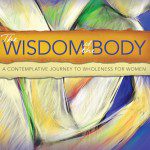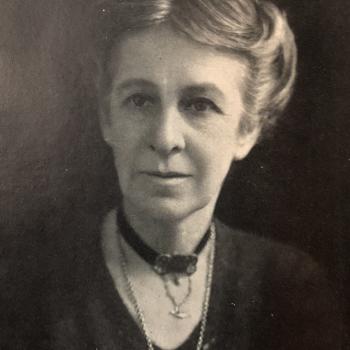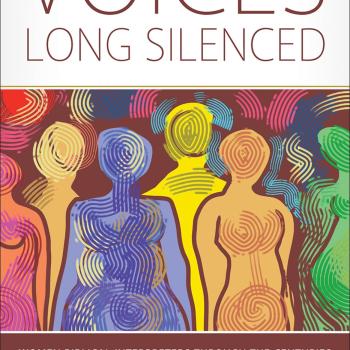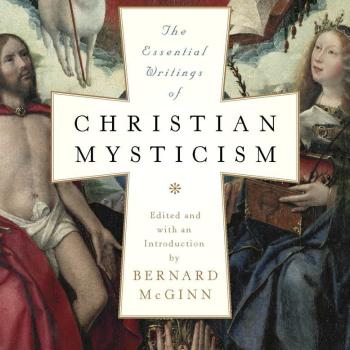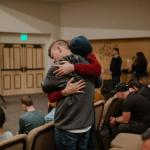
A reader of this blog sent me an email recently that said in part:
I have to confess I have not yet read any of your books. But I love your writing and would like to learn more about Christian spirituality. Can you recommend several of your books, and perhaps suggest the order to read them? Anything else you’d recommend (books, online, etc) would be great too.
Ironically (this is not by design), I recommend you read my books in alphabetical order. As of this writing, I have five books specifically concerning Christian contemplation. Here’s the order to read them:
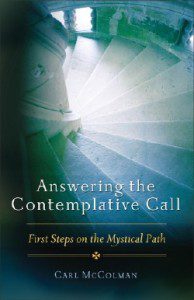 Answering the Contemplative Call: First Steps on the Mystical Path— a book written specifically for beginners and designed to help a person claim his or her sense of being called into the contemplative life, even if expressed in the ordinary context of secular life. I look at the benefits of waking up slowly, the importance of spiritual companionship, the centrality of silence, and the heart of spirituality as “kenosis,” a Greek word that literally means “emptying.”
Answering the Contemplative Call: First Steps on the Mystical Path— a book written specifically for beginners and designed to help a person claim his or her sense of being called into the contemplative life, even if expressed in the ordinary context of secular life. I look at the benefits of waking up slowly, the importance of spiritual companionship, the centrality of silence, and the heart of spirituality as “kenosis,” a Greek word that literally means “emptying.”- Befriending Silence: Discovering the Gifts of Cistercian Spirituality— this book takes a more focussed look at spirituality, arising from my experience as a Lay Cistercian: a student of Trappist monks. Cistercian/Trappist spirituality is deeply contemplative, simple, austere, Christ-centered, truly prayerful, and steeped in humble charity. It’s a lovely path for following Christ, and while not everyone may be called to be a Lay Cistercian, I think anyone who is drawn to contemplation will find something useful in this book.
- The Big Book of Christian Mysticism: The Essential Guide to Contemplative Spirituality— I had wanted to write a book like this for years: a basic overview of Christian mysticism specifically for those who want to embrace the mystical path for their own. So while it is informed by scholarship, it is not a scholarly or academic book, but rather a reflection, really in response to Karl Rahner’s challenge: “The Christian of the future will be a mystic, or… will not exist.” If we take that challenge seriously, obviously it leads to this: “What is a mystic, and how do I become one?” Hopefully this book will help anyone struggling with that question.
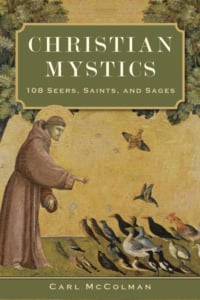 Christian Mystics: 108 Seers, Saints and Sages— really a companion volume to The Big Book of Christian Mysticism, this is a “who’s who” of over 100 of the greatest Christian contemplatives and mystics over the centuries, ranging from Biblical figures to several who are still living as of today. I look at the mystics through nine different descriptive categories, and hopefully the end result is helping the reader to see that mystics come in all shapes and sizes: and a central part of mystical spirituality is discovering your own unique way of relating to God.
Christian Mystics: 108 Seers, Saints and Sages— really a companion volume to The Big Book of Christian Mysticism, this is a “who’s who” of over 100 of the greatest Christian contemplatives and mystics over the centuries, ranging from Biblical figures to several who are still living as of today. I look at the mystics through nine different descriptive categories, and hopefully the end result is helping the reader to see that mystics come in all shapes and sizes: and a central part of mystical spirituality is discovering your own unique way of relating to God.- The Lion, the Mouse and the Dawn Treader: Spiritual Lessons from C. S. Lewis’s Narnia— if you love C. S. Lewis and especially the Narnia stories, you might want to move this one higher up the list. I have long been impressed by how Lewis, in writing a children’s sea adventure (The Voyage of the Dawn Treader) offers a fairly comprehensive “map” of the contemplative/mystical life. My book is companion volume which unpacks the symbolism and allusions that dance throughout Lewis’s charming story.
Now, for five other books I strongly recommend for anyone who wants to learn more about Christian contemplative spirituality:
- Into the Silent Land: A Guide to the Christian Practice of Contemplation by Martin Laird — Far and away the best beginner’s book on contemplation I have ever read. Steeped in the literature of the church fathers and especially the Eastern Orthodox tradition, this book is nevertheless charmingly written, accessible, and pulls no punches as it explores the implication and object of a sustained daily prayer practice. The chapter on distractions is alone worth the price of the book.
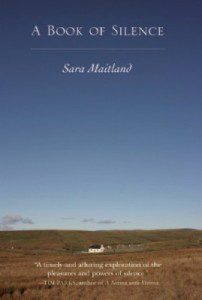 A Book of Silence by Sara Maitland — This is not a “contemplative” book like the others on this list, although Maitland is a Catholic and her faith and spirituality inform this book’s premise. That premise: that silence is beautiful, and something we all need more of, is an important foundational principle for contemplation, so I encourage you to take this detour and savor this woman’s insightful and lyrical wisdom.
A Book of Silence by Sara Maitland — This is not a “contemplative” book like the others on this list, although Maitland is a Catholic and her faith and spirituality inform this book’s premise. That premise: that silence is beautiful, and something we all need more of, is an important foundational principle for contemplation, so I encourage you to take this detour and savor this woman’s insightful and lyrical wisdom.- Everything Belongs: The Gift of Contemplative Prayer by Richard Rohr — Perhaps the most accessible book I’ve listed here, Everything Belongs gives the basics of contemplation in the warm and friendly voice of Richard Rohr, easily the most popular Christian contemplative writing today. Although very basic, the book is built around a simple concept: that in contemplation, everything belongs — which is an important insight that can help a person grasp the radical insight of non-duality (or in traditional Christian language, union with God).
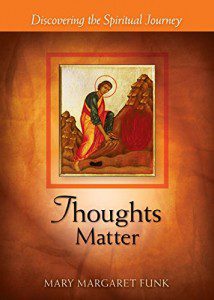 Thoughts Matter: Discovering the Spiritual Journey by Mary Margaret Funk — Meg Funk is a Benedictine nun and a leader in Catholic/Muslim interreligious dialogue. But this book — the first in a series of five books she has authored on Christian spirituality — dives deep into the Christian tradition, going all the way back to the Desert Fathers and Mothers who saw the healing of our thoughts as an essential component not only of the contemplative life, but really of life altogether.
Thoughts Matter: Discovering the Spiritual Journey by Mary Margaret Funk — Meg Funk is a Benedictine nun and a leader in Catholic/Muslim interreligious dialogue. But this book — the first in a series of five books she has authored on Christian spirituality — dives deep into the Christian tradition, going all the way back to the Desert Fathers and Mothers who saw the healing of our thoughts as an essential component not only of the contemplative life, but really of life altogether.- New Seeds of Contemplation by Thomas Merton — I’m not sure if this is really a “beginner’s” book; in fact, the more I think about it, the more I’m sure that it is not. But after you’ve read the first four books on this (and hopefully, at least a couple of the books I wrote), then you’re ready to begin exploring the primary sources in mystical literature. And this book, a collection of meditations by the most renowned mystic of the twentieth century, is probably the best place to enter into the great tradition of Christian mystical writing. It will challenge you, inspire you, frustrate you, and open up new ways of seeing for you. But all the great mystical literature will do that.
One final word: avoid the urge to simply chew through these books as if they were beach reads. First, they certainly are not mere escapist literature, which means that even for gifted readers, a quick read-through will necessarily involve a sacrifice in your comprehension of the material. But even more to the point: by its very nature, contemplative literature rewards those who read slowly, prayerfully, meditatively. These books only fully reveal their treasures only when we linger over their words. So take your time with them. Spirituality is not a race — it is an invitation to a transformed way of living. And part of that transformation is letting go of our cultural obsession with information. Read these books not for information (which you can use or manage) but for formation (which is something that God does to you).
Enjoy reading this blog?
Click here to become a patron.



